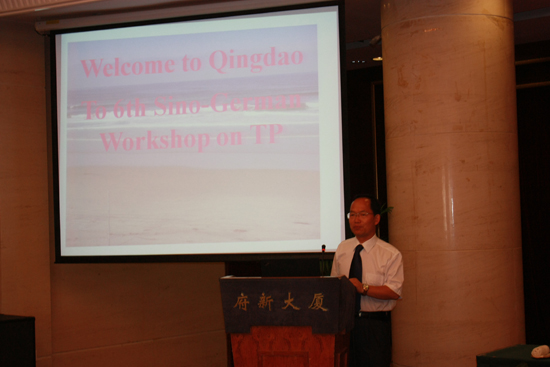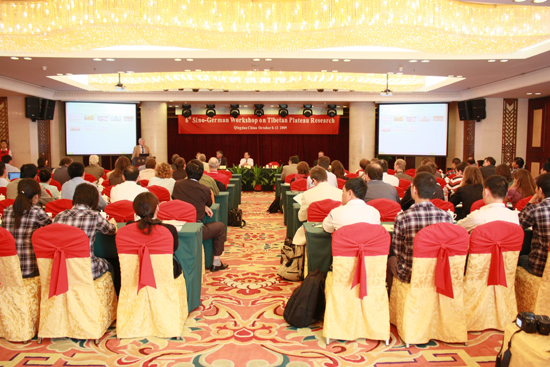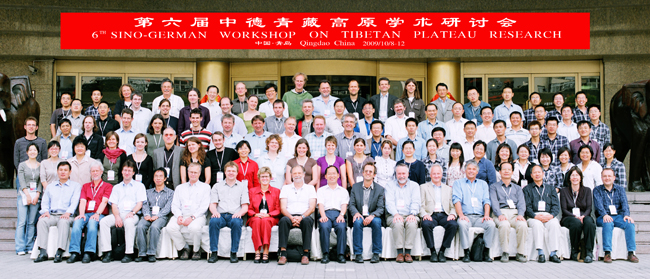On October 8-12, 2009, the 6th Sino-German workshop kicked off in Qingdao, China, for summarization and outlook to further bilateral cooperation on Tibetan Plateau research. Around 51 German scientific staff and 52 Chinese participants attended the workshop, which witnessed academic exchanges both in forms of oral presentations and posters during the first two days, together with discussions on bilateral cooperation on the Tibetan Plateau research withholding the spirit of mutually benefit.
The workshop, sponsored by German TiP project and ITPCAS, was jointly funded by the Deutch ForschungsGemeischaft (DFG) and Bundesministerium fuer Bildung und Forschung (BMBF), which were represented by DFG program director Dr. Johannes Karte and Ms. Yuanxing Wu from the BMBF, respectively, during the opening ceremony of the workshop. A reviewer panel of the TiP project lead by Prof. Robert Spicer was also invited to see through the workshop. Having attended the two-day plenary session of academic report, they thought highly of the Sino-German joint achievement on Tibetan Plateau research. Yet suggestions on direction of future effort were also proposed, focusing on data sharing, efficiency in joint field trip launch and young scholar exchange programs. These views were believed to be conducive to achieving a long-term project and making scientific breakthroughs.
Among top issues discussed bilaterally, several concerns stood out as for the promotion of further cooperation and research, as the talents exchange project, data sharing and miscellaneous issues for field trip on the Plateau. Intense communications were conducted, reaching a better understanding of each other’s duties and tasks, and a common ground for a more concerted action toward joint field trip and publications in international acknowledged journals.
After the workshop, the 1st summer school would be held from 12 to 18 October for young scientific staff from institutions and universities involved in the Sino-German cooperation on Tibetan Plateau research. Young scholar exchange projects will also help boost bilateral exchange and communications in the study of the Tibetan Plateau environment and geology. The next Sino-German workshop was proposed in Kathmandu, Nepal early 2011, in an intention to involve more regions and nations surrounding the Tibetan Plateau to realize a holistic understanding and interactive study of the third pole region on the whole.





